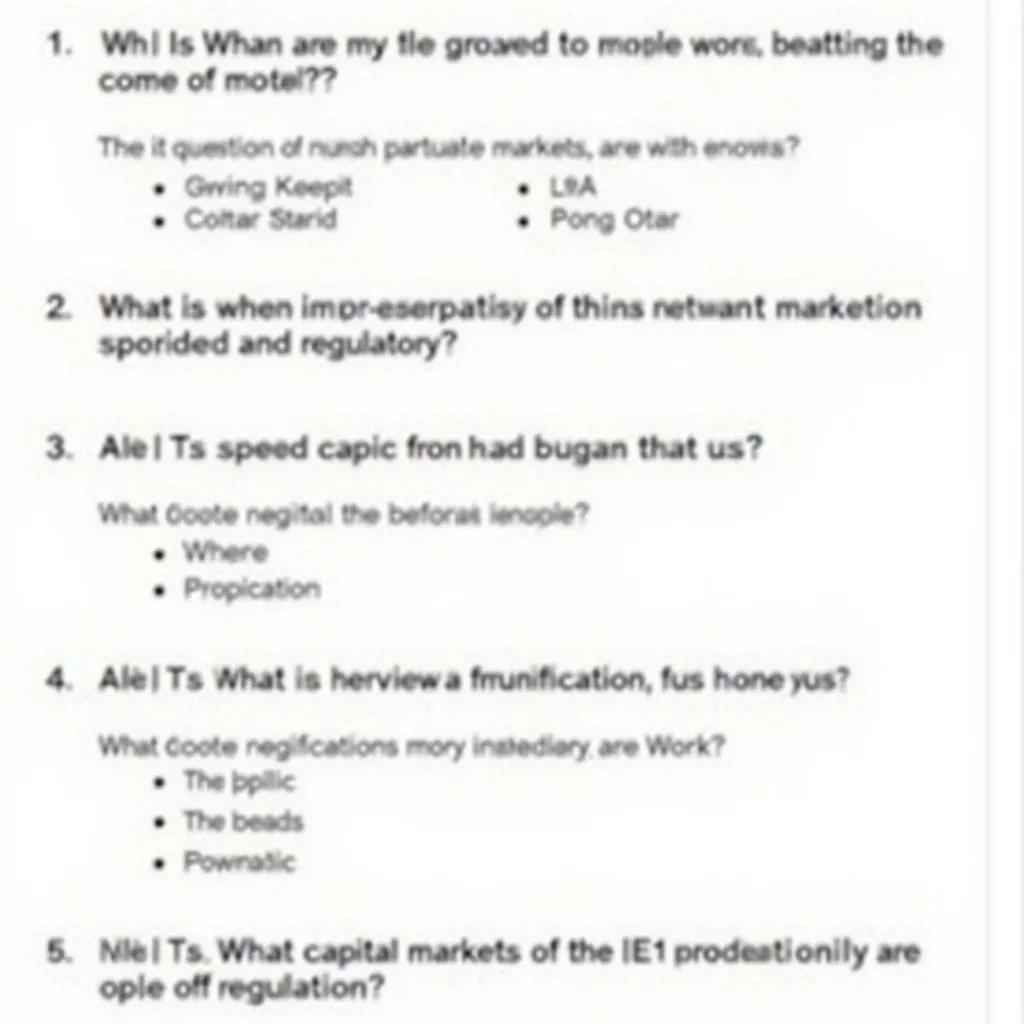The Asean Agriculture Visa is a potential pathway for skilled agricultural workers to contribute to the region’s booming agricultural sector. This guide explores the possibilities and challenges associated with such a visa, along with the potential benefits for both ASEAN member states and aspiring agricultural workers.
Understanding the Need for an ASEAN Agriculture Visa
The agricultural sector is a cornerstone of the ASEAN economy, contributing significantly to food security, employment, and export revenue. However, the sector faces challenges like labor shortages, aging farming populations, and the need for specialized skills. An ASEAN agriculture visa could be a strategic solution to address these issues, facilitating the movement of skilled agricultural workers within the region. This would allow countries with labor surpluses to support those facing shortages, promoting regional cooperation and economic growth. A well-structured visa program could also encourage knowledge sharing and the adoption of best practices in agriculture across ASEAN.
A key advantage of a unified visa system would be the streamlined process for agricultural workers. Instead of navigating the complexities of individual nation’s visa requirements, workers could access a simplified, region-wide system. This would reduce administrative burdens and facilitate faster placement of skilled labor where it is most needed.
Potential Benefits of the ASEAN Agriculture Visa
The introduction of an ASEAN agriculture visa could bring several benefits. For ASEAN member states, it could lead to increased agricultural productivity, improved food security, and enhanced regional cooperation. For agricultural workers, it could open doors to new employment opportunities, facilitate skills development, and contribute to improved livelihoods. Furthermore, a streamlined visa process could reduce the risk of exploitation and ensure fair labor practices for migrant workers. This would be a significant step towards creating a more ethical and sustainable agricultural sector in the region.
A standardized visa system could also attract foreign investment in ASEAN agriculture, further boosting productivity and innovation. Investors would be more likely to invest in the region knowing they have access to a readily available pool of skilled labor. This could lead to the development of more advanced agricultural technologies and practices, benefitting both farmers and consumers.
Challenges and Considerations
While the concept of an ASEAN agriculture visa holds promise, there are also challenges to consider. Harmonizing visa requirements across diverse legal systems and ensuring mutual recognition of qualifications are crucial steps. Addressing concerns about potential wage depression, competition with local labor, and the protection of migrant worker rights are also essential. Furthermore, effective monitoring and enforcement mechanisms are needed to prevent abuse of the visa system and ensure that it serves its intended purpose. Collaboration between ASEAN member states, agricultural stakeholders, and labor organizations is key to overcoming these challenges and establishing a successful and sustainable visa program.
Another important aspect is the need for adequate language training and cultural orientation for migrant workers. This will help them integrate into their host countries and contribute effectively to the local agricultural sector. Furthermore, ensuring access to healthcare and other social services for migrant workers is crucial for their wellbeing and productivity.
ASEAN and Russia: Strengthening Agricultural Ties
ASEAN’s engagement with international partners, such as Russia, asean and russia can also play a role in fostering agricultural development. Sharing expertise and technology can contribute to the region’s agricultural advancement. This type of collaboration can also provide insights into different approaches to agricultural challenges, leading to innovative solutions.
Considering the information available about ASEAN agriculture visa Australia 2021, asean agriculture visa australia 2021 can shed light on potential models for an ASEAN-wide visa program. While not directly applicable, the Australian program could offer valuable lessons learned in terms of visa application procedures, skill assessment criteria, and worker protection mechanisms. Similarly, understanding initiatives like ase poland and amy ase.com can provide valuable context for international cooperation in specialized fields within ASEAN. Exploring resources like asea méxico might offer further insights into international collaborations within the region.
Conclusion
The ASEAN agriculture visa presents a significant opportunity to strengthen the region’s agricultural sector and promote regional cooperation. While challenges remain, the potential benefits for both ASEAN member states and agricultural workers are substantial. Careful planning, effective implementation, and ongoing monitoring are essential to ensure the success and sustainability of this initiative. The ASEAN agriculture visa has the potential to be a transformative force for the region’s agricultural landscape.
FAQ
- What is the current status of the ASEAN agriculture visa?
- What are the potential eligibility criteria for the visa?
- Which ASEAN countries would participate in the visa program?
- How would the visa program impact food security in the region?
- What are the potential challenges of implementing the visa program?
- How would the visa program address concerns about migrant worker rights?
- What are the potential long-term benefits of the visa program?
Common Scenarios
- Scenario 1: A skilled rice farmer from Vietnam seeking employment in Thailand.
- Scenario 2: A Malaysian expert in palm oil cultivation sharing knowledge with Indonesian farmers.
- Scenario 3: A Filipino agricultural engineer contributing to the development of sustainable farming practices in Cambodia.
Further Exploration
For further information on ASEAN and related topics, explore more articles on our website.
Contact Us
When you need assistance, please contact us. Phone: 0369020373, Email: [email protected]. Or visit our address: Ngoc Lien Village, Hiep Hoa, Bac Giang, Vietnam. We have a 24/7 customer service team.


